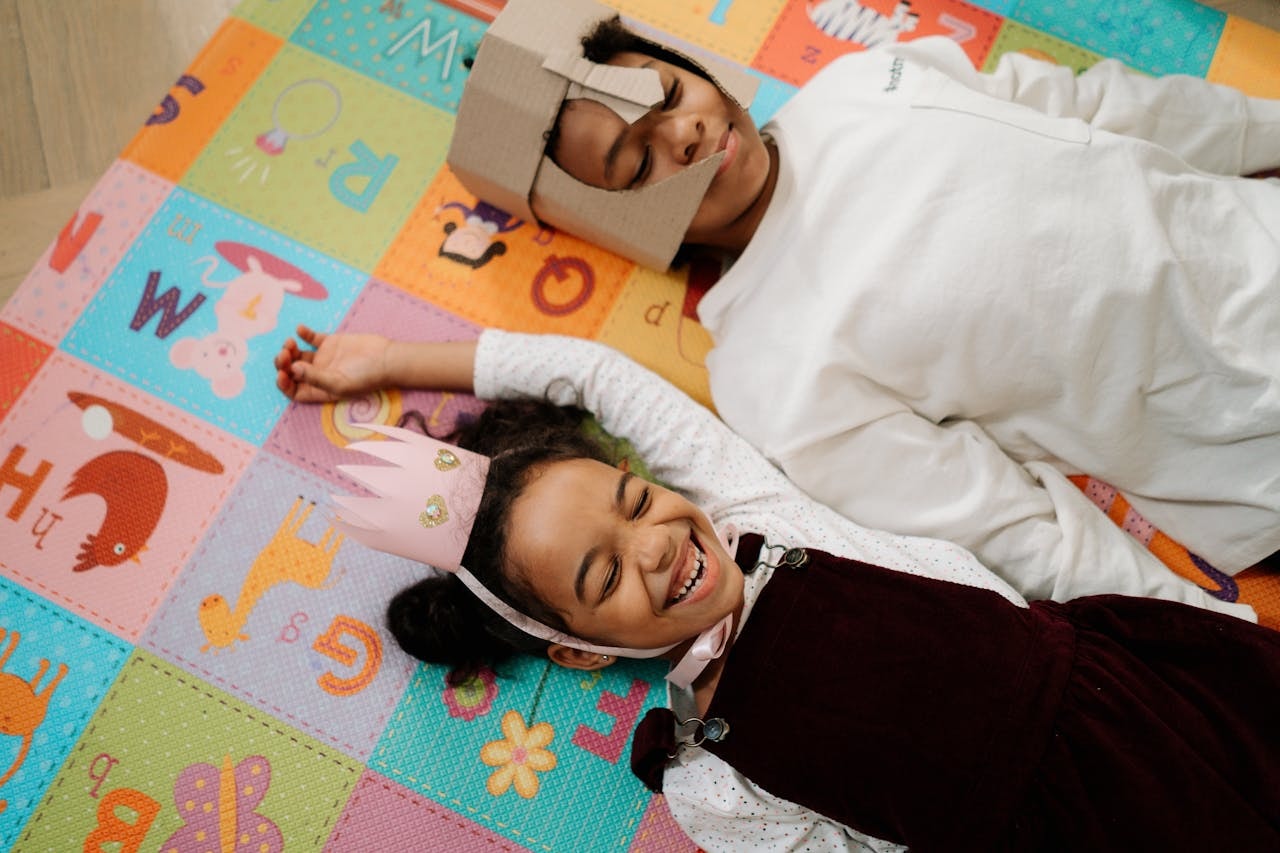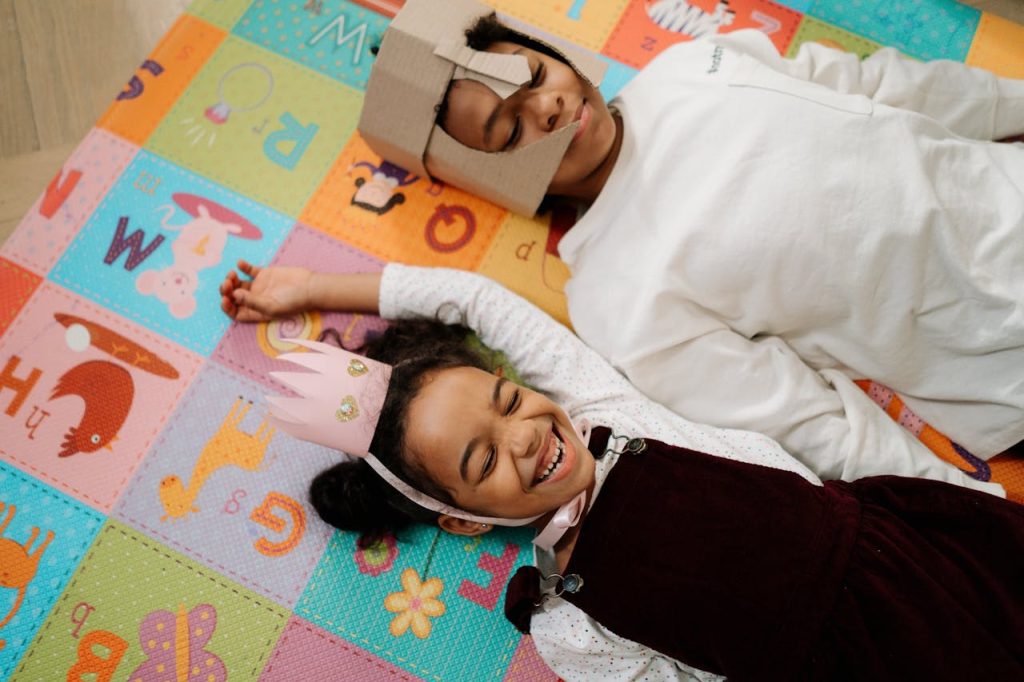Blog
How Much Sleep Do Children Need? Expert-Recommended Hours by Age
Wondering how much sleep your child needs to thrive? It’s important to know that sleep requirements change as they grow. As your child ages, they’ll need less sleep. For the first few months, your baby will need up to 17 hours of sleep, while teenagers will typically need between 8 and 10. To help you make sense of this journey, this article will explain the recommended sleep hours for different age groups.
Key Takeaways
- Children’s sleep requirements vary by age, with infants needing between 12-17 hours and teenagers requiring 8-10 hours for optimal health and development.
- Adequate sleep supports physical, cognitive, and emotional well-being, making it crucial for children’s growth and academic performance.
- Establishing consistent sleep schedules, creating calming bedtime routines, and optimising sleep environments are essential strategies for improving a child’s sleep quality.
Recommended Sleep Hours by Age Group
Children’s sleep needs vary significantly as they grow, and understanding these differences is key to fostering healthy sleep habits. Organisations such as Great Ormond Street Hospital and the American Academy of Sleep Medicine provide clear guidelines on the recommended hours of sleep for different age groups:
- Infants (0 to 12 months) – 12 to 17 hours of sleep in a 24-hour period
- Toddlers (1 to 2 years) – 11 to 14 hours of sleep in a 24-hour period
- Nursery age (3 to 5 years) – 10 to 13 hours of sleep in a 24-hour period
- School age (6 to 12 years) – 9 to 12 hours of sleep in a 24-hour period
- Teenagers (13 to 18 years) – 8 to 10 hours of sleep in a 24-hour period
These recommendations help ensure your child receives the sleep kids necessary for their health and development.
Infants (0 to 12 months)
For infants aged 0 to 12 months, sleep is a cornerstone of their rapid growth and development. Most babies in this age group need between 12 to 17 hours of sleep within a 24-hour period, including naps. Younger babies (from 0 to 4 months) typically need more, while older babies need less. This amount of sleep supports their physical growth, brain development, and emotional well-being. It’s worth noting that not all babies are the same, and therefore one might find 8 hours is sufficient while another needs 17.

Toddlers (1 to 2 years)
Toddlers, those energetic little explorers aged 1 to 2 years, require about 11 to 14 hours of sleep each day, including naps. This age group’s sleep patterns are crucial for their physical growth and cognitive development. To ensure they get the recommended hours of sleep to support their energy levels, mood regulation, and overall health, parents should focus on creating a consistent bedtime routine and a designated sleep area to reinforce rest and promote better sleep habits.
Nursery (3 to 5 years)
Nursery-aged children, between 3 to 5 years old, typically need 10 to 13 hours of sleep per day, including naps. Adequate sleep at this stage supports significant physical, cognitive, and emotional development. It is during these pre-school years that children begin to hone their learning abilities and regulate their behaviour more effectively.
School-age children (6 to 12 years)
As children enter school age, from 6 to 12 years, their sleep needs slightly decrease compared to their younger years. School-age children typically need between 9 to 12 hours of sleep each night, and this duration is vital to support their academic performance, physical health, and emotional stability as they transition into the school years.
About 60 minutes of daily physical activity aids school-age children in maintaining healthy sleep patterns and overall well-being, so consider taking them outside if they don’t get a chance to play with friends at or after school.

Teenagers (13 to 18 years)
Teenagers, aged 13 to 18 years, require about 8 to 10 hours of sleep daily, however, many get fewer hours than this. This period of life is marked by significant physical and emotional changes, and adequate sleep is crucial to providing teenagers with the energy they need. Quality sleep helps teenagers regulate their emotions, reduces irritability, and lowers the risk of mental health issues like anxiety. Understanding how much sleep is necessary can help ensure they meet their needs.
Why Sleep is Crucial for Children and Teens
Sleep is not just about rest; it is a critical component of children’s and teenagers’ overall health and development. Sufficient sleep enhances cognitive development, supports physical health, and improves emotional well-being.
Let’s dive into the benefits of getting enough sleep:
Physical Health
Adequate sleep significantly contributes to a child’s physical health. It supports growth, strengthens the immune system, and aids in recovery from daily activities. Children who get enough sleep are better equipped to fend off illnesses, thanks to enhanced immune system function.
What’s more, engaging in regular physical activity can significantly improve sleep quality, reduce nighttime awakenings, and help manage weight gain. Exercise not only tires out the body but also helps regulate the sleep-wake cycle, making it easier for children to fall asleep and stay asleep throughout the night.
Cognitive Development
Sleep is a cornerstone of cognitive development and brain function in children. Adequate sleep enhances memory, learning, and problem-solving skills. For nursery-aged children, napping can significantly improve their memory and thinking capabilities, which are crucial for their cognitive growth.
Emotional Well-Being
Quality sleep is closely linked to emotional well-being in children and teens, and a structured bedtime routine can help children fall asleep quicker and wake up less during the night. Addressing sleep disruptions caused by anxiety, changes in routine, or behavioural issues is crucial for maintaining emotional stability.

Activities to Help Children Get to Sleep
Helping children wind down before bedtime can make a significant difference in their sleep quality. Here are some age-appropriate activities that can help children of different ages relax and prepare for sleep:
Infants (0 to 12 months)
- Gentle Rocking: Rocking your baby gently in your arms or a rocking chair can be soothing and help them drift off to sleep.
- Soft Singing: Singing a lullaby or playing soft, calming music can create a peaceful atmosphere conducive to sleep.
- Warm Bath: A warm bath before bedtime can relax your baby and signal that it’s time to sleep.
Toddlers (1 to 2 years)
- Bedtime Stories: Reading a short, calming story can help toddlers unwind and transition to sleep.
- Cuddling: Spending a few minutes cuddling with your toddler can provide comfort and security, making it easier for them to fall asleep.
- Stuffed Animals: Allowing your toddler to sleep with a favourite stuffed animal can provide a sense of comfort and help them settle down.
Nursery Age (3 to 5 years)
- Bedtime Reading: Reading a slightly longer story or a chapter from a favourite book can help preschoolers relax and prepare for sleep.
- Quiet Play: Engaging in quiet activities like puzzles or drawing can help children wind down without overstimulating them.
- Nightlight: Using a soft nightlight can create a comforting environment that helps children feel safe as they fall asleep.
School-Age Children (6 to 12 years)
- Relaxation Exercises: Simple relaxation exercises, such as deep breathing or gentle stretching, can help school-age children release tension and prepare for sleep.
- Journaling: Encouraging children to write about their day or jot down any worries can help clear their minds before bed.
- Reading: Allowing children to read a book of their choice for a set amount of time can help them relax and transition to sleep.
Teenagers (13 to 18 years)
- Mindfulness or Meditation: Practicing mindfulness or guided meditation can help teenagers relax and reduce stress before bed.
- Listening to Music: Playing soft, calming music or nature sounds can create a peaceful environment that promotes sleep.
- Limiting Screen Time: Encouraging teenagers to turn off electronic devices at least an hour before bedtime can help them wind down and fall asleep more easily.
Incorporating these activities into your child’s bedtime routine can help create a calming atmosphere and promote better sleep habits across different age groups.

How to Improve Sleep Quality for Kids
Enhancing sleep quality for children involves a combination of strategies that address their unique needs and challenges. Establishing a consistent sleep schedule, creating a calming bedtime routine, and optimising the sleep environment are key steps to ensure children get the restful sleep they need.
Establish a Consistent Sleep Schedule
Maintaining a consistent sleep schedule is crucial for children’s physical, mental, and emotional well-being. A stable sleep routine helps align their internal clock, promoting better sleep quality and overall health. Establishing regular bedtimes and wake-up times, even on weekends, can create a sense of security and foster independent sleep.
Create a Calming Bedtime Routine
A calming bedtime routine helps signal to children’s bodies that it’s time to wind down and prepare for sleep. Incorporating activities like reading a book, taking a warm bath, or practising light stretching can create a soothing environment that promotes sleep.
Consistency in this routine helps children develop good sleep habits and makes the transition to sleep smoother.
Optimise the Sleep Environment
Creating an optimal sleep environment is essential for improving sleep quality. A dark, cool, and quiet bedroom can significantly enhance sleep conditions. Removing electronic devices from the sleep area minimizes distractions and helps children fall asleep faster.
A tidy bedroom and turning off electronic devices at least an hour before bedtime further promote a restful sleep environment.

Common Sleep Challenges and Solutions
Children often face various sleep challenges, from difficulty falling asleep to waking up at night. Addressing these issues with effective solutions can help ensure they get the restorative sleep they need for their health and development.
Difficulty Falling Asleep
Many children struggle with falling asleep, leading to frustration for both the kids and their parents. Cognitive Behavioral Therapy for Insomnia (CBT-I) can be more effective than medication in addressing these issues. Establishing a bedtime routine and reducing screen time before bed are simple yet powerful strategies to improve sleep onset.
Using these methods ensures children receive the necessary sleep for their overall health.
Night Waking
Night waking is a common challenge where children wake up multiple times during the night and struggle to return to sleep. Encouraging self-soothing techniques and minimising interactions with parents can help children develop the skills to fall back asleep independently.
Avoiding scary TV shows or movies before bedtime prevents fears or anxieties that disrupt sleep.
Insufficient Sleep
Recognising the signs of sleep deprivation in children is crucial for ensuring adequate rest. Symptoms like irritability, difficulty concentrating, and excessive daytime sleepiness can indicate insufficient sleep. Identifying these signs early and taking steps ensures children get the necessary amount of sleep for their health and development.
The Role of Nutrition and Exercise in Sleep
Nutrition and exercise play significant roles in determining sleep quality. A balanced diet and regular physical activity can enhance sleep, while poor dietary choices and lack of exercise hinder it.
Healthy Diet
A balanced diet is crucial for children’s overall health and directly influences sleep quality. Proper nutrition supports both physical and cognitive functions, which in turn affect sleep. Avoiding caffeine in the late afternoon and evening can promote better sleep.
A light snack before bed helps if a child complains of hunger during the night.
Regular Exercise
Engaging in regular physical activity is another cornerstone of good sleep hygiene. Exercise helps improve sleep quality and reduce nighttime awakenings, but it’s important to time workouts appropriately. Vigorous exercise too close to bedtime can interfere with the ability to fall asleep quickly.
Daytime activity encourages deeper, more restful normal sleep at night, especially for those who are sleep deprived.
Summary
Understanding the needs of a child when it comes to sleep is essential for their overall health and development. By following expert-recommended sleep hours, addressing common sleep challenges, and implementing practical tips for improving sleep quality, parents can ensure their children are well-rested and thriving.
Remember, a consistent sleep schedule, a calming bedtime routine, and an optimal sleep environment are key to fostering healthy sleep habits. With these strategies, you can help your child achieve the restful sleep they need to grow and succeed.
Interested in providing a suitable space for your child to sleep? Read our ultimate guide to kids’ bed sizes.
Frequently Asked Questions
How many hours of sleep do infants (4 to 12 months) need?
Infants aged 4 to 12 months generally require 12 to 16 hours of sleep per day, including naps, to ensure optimal growth and development.
What are some effective strategies for helping my child fall asleep?
Establishing a consistent bedtime routine and reducing screen time before bed are effective strategies to help your child fall asleep more easily. Creating a calming environment further enhances their ability to relax and drift off to sleep.
How can I help my child who wakes up frequently during the night?
Encouraging self-soothing techniques and minimising interactions during night wakings will help your child develop the ability to return to sleep independently. This approach fosters healthier sleep habits over time.
What role does nutrition play in my child’s sleep quality?
Nutrition plays a crucial role in your child’s sleep quality by supporting their overall health. Providing a balanced diet, avoiding caffeine, and avoiding late-night snacks can promote better sleep.
Are sleep trackers reliable for monitoring my child’s sleep?
Sleep trackers can provide valuable insights into your child’s sleep patterns and duration, although their accuracy may vary. Overall they are a useful tool for parents looking to keep an eye on how much sleep their child is getting.

